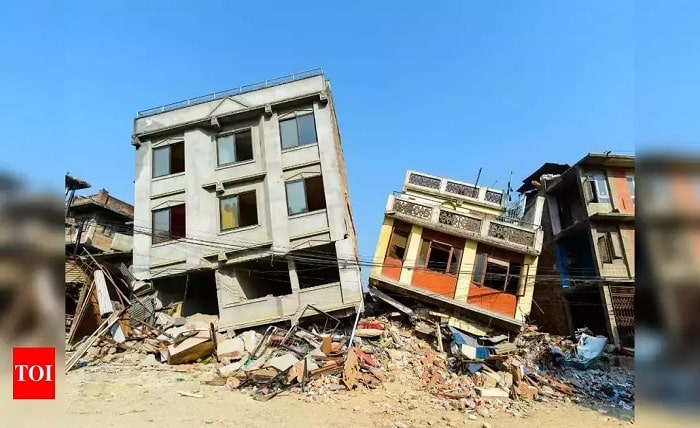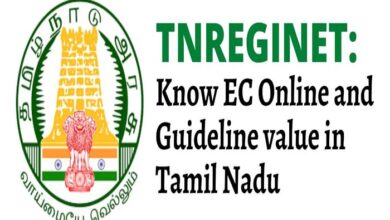Earthquake in Delhi: Causes, Impact, History, and Safety Measures

The Causes of Earthquake in Delhi
The earthquake in Delhi has always sparked curiosity and concern due to the region’s unique geographical and tectonic setting. Delhi lies near the Himalayan seismic belt, which is among the most earthquake-prone zones in the world. This positioning makes earthquake in Delhi a recurring possibility as tectonic plates underneath the Earth’s crust continue to move and release energy.
Over the years, scientists have studied the earthquake in Delhi patterns and attributed them to the movement of the Indian plate beneath the Eurasian plate. This constant collision and pressure build-up result in seismic activity. While most quakes are minor, the possibility of a significant earthquake in Delhi remains a concern, especially considering the city’s dense population.
The earthquake in Delhi can also be linked to fault lines that pass near or under the city. These fault lines are essentially fractures in the Earth’s surface, and when stress builds up along them, it is released as an earthquake. This geological reality makes it imperative to monitor earthquake in Delhi activity closely.
Recent Earthquake in Delhi and Its Immediate Effects
The most recent earthquake in Delhi occurred [insert latest date here], shaking the city and causing panic among residents. Although the magnitude was moderate, it was felt across NCR (National Capital Region), and social media was abuzz with people sharing their experiences during the earthquake in Delhi.
Immediate effects of the earthquake in Delhi included temporary building evacuations, halted metro services for safety checks, and minor property damage in certain areas. Luckily, no major casualties were reported, but the tremor served as a stark reminder of how vulnerable urban areas are to natural disasters like an earthquake in Delhi.
Even a mild earthquake in Delhi can disrupt the city’s daily life. Schools are closed temporarily, people rush out of buildings, and emergency response teams are put on high alert. Every earthquake in Delhi scenario tests the readiness of authorities and citizens to handle such sudden events.
History of Earthquake in Delhi: Significant Seismic Events
Delhi has witnessed numerous seismic events, but some have stood out for their intensity and impact. The earthquake in Delhi on August 27, 1960, for instance, measured 6.0 on the Richter scale and caused considerable panic. More recently, a 5.4 magnitude earthquake in Delhi on May 29, 2020, jolted the capital and parts of North India.
These historical earthquake in Delhi incidents have pushed government bodies to enhance their disaster preparedness and awareness programs. The seismic activity is a recurring theme in Delhi’s environmental history, and every major earthquake in Delhi has served as a wake-up call.
What’s crucial to remember is that no part of Delhi is entirely immune. Different localities may experience varying intensities during an earthquake in Delhi, depending on the soil type, building structure, and proximity to the epicenter. This makes every earthquake in Delhi a unique event with its own dynamics and consequences.
Impact of Earthquake in Delhi on Infrastructure and Economy
The earthquake in Delhi doesn’t just rattle buildings; it can also disrupt the economy, infrastructure, and public services. Roads, bridges, and transportation systems face significant stress, especially if the earthquake in Delhi is moderate to high in magnitude.
Real estate and construction sectors are particularly affected during and after an earthquake in Delhi. Unsafe buildings are evacuated, and people begin to question the structural integrity of high-rises. Even a rumor of structural vulnerability due to an earthquake in Delhi can reduce property value and shake investor confidence.
Economically, an earthquake in Delhi can lead to significant losses in business continuity. Offices, shops, and marketplaces may remain closed for safety inspections, disrupting daily commerce. The fear of another earthquake in Delhi also dampens consumer sentiment, slowing down economic recovery.
Preparedness and Disaster Management for Earthquake in Delhi
With the increasing frequency of tremors, earthquake in Delhi preparedness has become a critical agenda for both the government and civil society. The Delhi Disaster Management Authority (DDMA) has been actively conducting drills, creating awareness, and implementing policies to minimize the impact of an earthquake in Delhi.
Public buildings, schools, and hospitals are being retrofitted to withstand seismic shocks. The focus is on creating earthquake-resilient infrastructure so that when the next earthquake in Delhi hits, casualties and damage are minimal. Early warning systems are also being developed to provide timely alerts before an earthquake in Delhi strikes.
Citizens are encouraged to participate in mock drills and training sessions to learn basic earthquake response techniques. Knowing how to “Drop, Cover, and Hold On” during an earthquake in Delhi can save lives. Community awareness is essential in building a culture of preparedness against every future earthquake in Delhi.
How to Stay Safe During an Earthquake in Delhi
Knowing what to do during an earthquake in Delhi is crucial for your safety. The golden rule remains: “Don’t panic.” If you are indoors when an earthquake in Delhi hits, find shelter under a sturdy table or stand next to an interior wall away from windows and heavy furniture.
If you are outdoors during an earthquake in Delhi, move to an open area away from buildings, trees, and power lines. Avoid using elevators and stay away from glass structures. Even a minor earthquake in Delhi can cause falling debris that can lead to injuries.
After the earthquake in Delhi, check for injuries and administer first aid if necessary. Avoid lighting matches or turning on electrical appliances until you are sure there is no gas leak. Every earthquake in Delhi is a test of your presence of mind, so staying calm and alert is key to survival.
Future of Earthquake in Delhi: Predictions and Mitigation Strategies
Predicting an earthquake in Delhi with precision is still beyond the reach of modern science, but advancements are being made in seismic research. Experts are now able to analyze patterns and provide risk assessments for future earthquake in Delhi scenarios.
Based on past activity and geological data, it is evident that another significant earthquake in Delhi is a matter of ‘when’ rather than ‘if’. This calls for a long-term strategy involving sustainable urban planning, stricter building codes, and widespread public education about earthquake in Delhi risks.
Technologies such as satellite imaging and AI-based modeling are being developed to predict the impact zones and intensity of future earthquake in Delhi incidents. The goal is to ensure minimal loss of life and property whenever the next earthquake in Delhi occurs.
Conclusion
The earthquake in Delhi is not just a natural event—it’s a reminder of our vulnerability and the need to be prepared at all times. From understanding its causes to taking steps for safety and preparedness, every aspect of the earthquake in Delhi must be taken seriously.
As Delhi continues to grow in population and infrastructure, the potential damage from an earthquake in Delhi also increases. Therefore, proactive planning, public awareness, and technological advancement are the need of the hour. Let’s not wait for the next earthquake in Delhi to remind us of the importance of readiness.
FAQs
1. What causes an earthquake in Delhi?
An earthquake in Delhi is caused by the movement of tectonic plates, especially due to the Indian plate colliding with the Eurasian plate.
2. How often does an earthquake in Delhi occur?
Minor tremors and low-intensity earthquake in Delhi events are quite frequent, though major quakes are rare but possible.
3. Is Delhi in a high-risk earthquake zone?
Yes, Delhi lies in seismic zone IV, making it a high-risk area for experiencing an earthquake in Delhi.
4. What should I do during an earthquake in Delhi?
During an earthquake in Delhi, stay calm, drop to the ground, take cover under sturdy furniture, and hold on until shaking stops.
5. Can earthquakes in Delhi be predicted?
While exact prediction isn’t possible, scientists can assess the risk of future earthquake in Delhi events through seismic data analysis.




